| |
|
|
| |
Rain on the way.
Thu 10th May, 2018
|
|
|
|
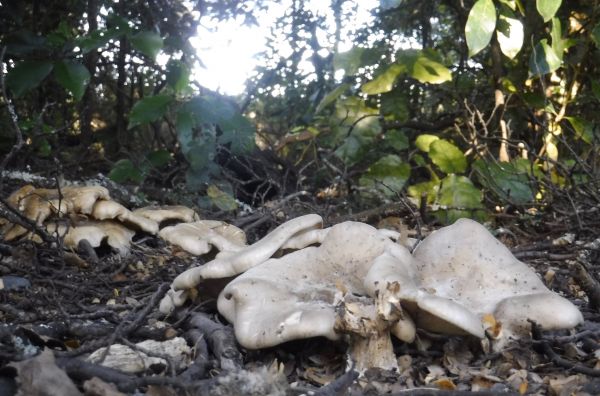 Mother Nature seems to have been a bit confused the last few weeks ... just like the fish! Mother Nature seems to have been a bit confused the last few weeks ... just like the fish!
The drifting leaves and late autumn fungi paint one picture but the warm temperatures and lovely summer-like days paint another.
I think the fishing generally is still hard going and most of the reports have a distinct lack of current fishy photos. We get this lean spell every year but this year it began earlier and has dragged on a bit. It reminds me a little of 2016 and if you click on May for that year you'll see what I mean.
But the fish will eventually have to "go for it" and some of the contributing factors that encourage fish to run were explained back then by fishery scientist Michel Dedual in this report from May 2016. Like this year, it had been a particularly tough couple of months and many anglers were struggling. But with a change in the weather it looked as if we had turned the corner and I was fishing with Bevis.
Below is an excerpt from that report :
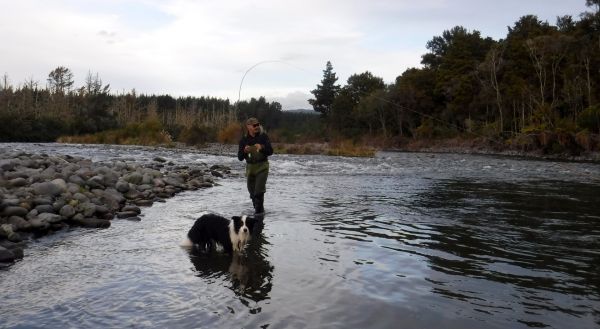 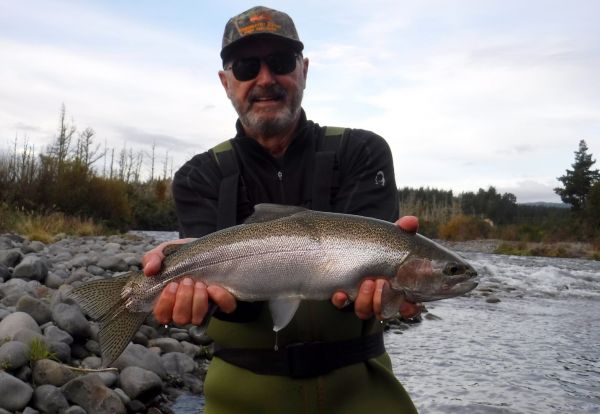
"So after a quiet few weeks it looks as if things may have kicked off at last on the Tongariro.
But why do fish run?
Rain or impending rain is often cited as one of the key triggers ... but there's obviously a lot more to it than that. So is it coincidence that all of a sudden the fishing improves and then a day or two later the forecast rain arrives. I have a feeling that in the unlikely event we had no rain from now until Christmas the fish would probably still run ... but what are the facts?
Michele Dedual explains the science behind it:
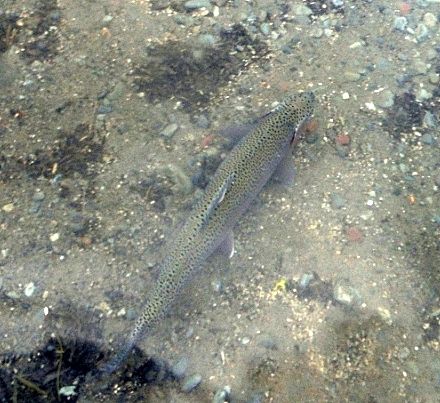
Hi Mike
This is a really good but big question and I’ll try to provide the most salient points.
1) Fish need to reach maturity before spawning and maturity is triggered by several factors. Growth is an obvious one, when fish grow quickly they will spawn earlier. If they don’t grow quickly they will “wait” longer in the lake before running trying to maximise the output of eggs. However, at some stage there is a trade-off between growing further with the risk of mortality and running a bit smaller. This is also when the sexual hormones cycles controlled by temperature, day length and also fat content (like in humans fish need some fat to metabolize hormones and again if the growing conditions are not right they will affect the maturity) become the dominant trigger.
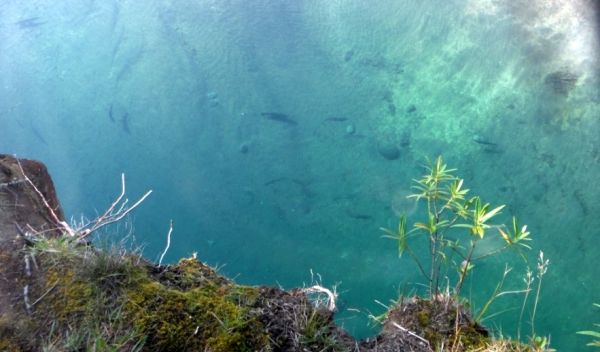
2) There are also environmental triggers as you indicate. In the Tongariro our radio-tracking experiments indicate that the early spawning fish are entering the river in an early state of maturation with eggs not in the advance stage of development (vitellogenesis). These fish will react strongly to freshes to move upstream but they will stop when conditions returned to normal milling in the same pool for long periods until the next fresh when they’ll push further. During this early phase of the run some fish can take as much as 89 days to move from the Delta to the Waipa Stream...This is probably why at the moment fish in the lower T-T are concentrated in such densities that I haven’t seen for many years, they are waiting for the next fresh. Interestingly these fish are really nervous and hard to catch having something else on their mind than just grabbing a nymph!
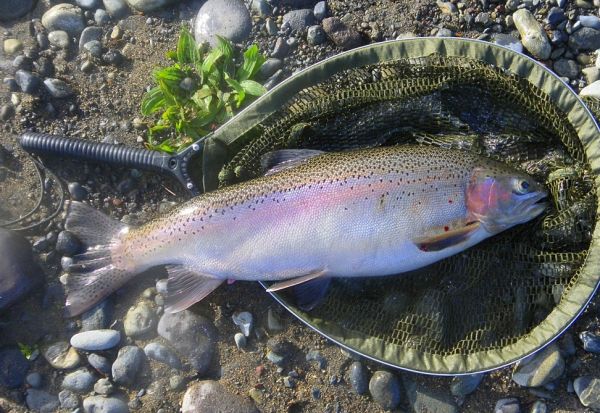 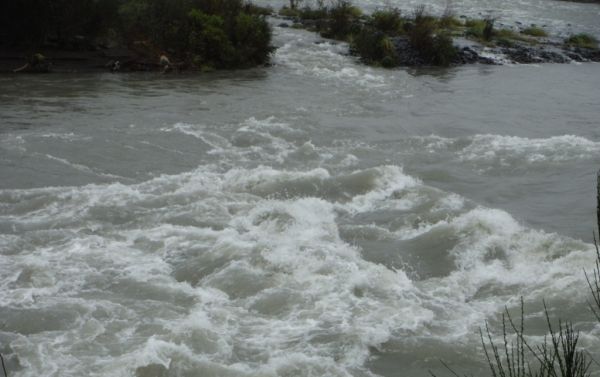 3) Later in the season (Sep-Nov) fish are running in a more advance stage of maturity and are less reactive to freshes with some fish rushing through the river in 9 days. 3) Later in the season (Sep-Nov) fish are running in a more advance stage of maturity and are less reactive to freshes with some fish rushing through the river in 9 days.
This indicates that the early running fish are very important for the fishery as they sustain the typical winter fishery. This is why we looked at the genetic make-up of the early v late running fish and more importantly if fishing (in the lake) was more likely to remove early running fish. We didn’t find any evidence of this but this is also where we met the limit of science.
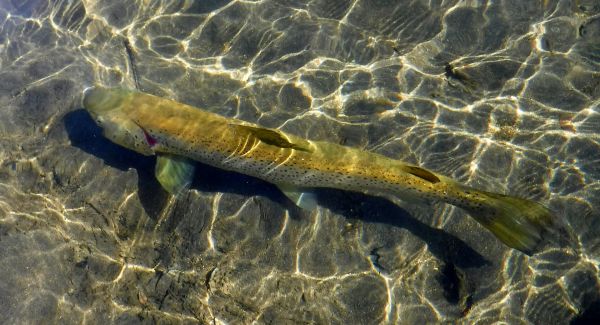
4) Water temperature and water flow are other triggers but how fish use them is not fully understood. There are some theories that the flow in the gravel which can go up or down is important and even used differently by brown and rainbows but again the science on this is not that strong.
5) The presence of fish spawning is another strong trigger as it provides a “smell” to the water that will attract others, in that sense it is the first run that is the hardest to get, thereafter things are more predictable.
Tight lines
Michel"
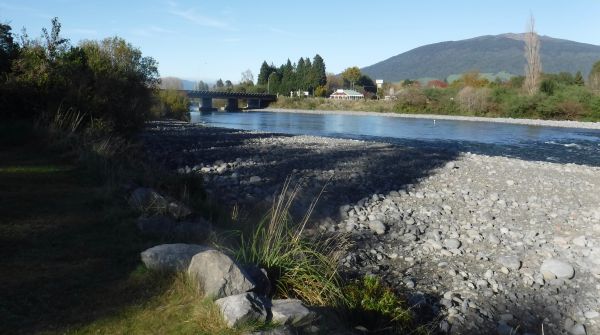
Back to the present and as I write this its another mild sunny morning in Turangi, with light winds.
I fished the TRB from Stag up yesterday and hooked three but lost every one of them. I spoke to a fisho a little further up in Mill Race and he'd had a similar morning. A few anglers around but its still pretty quiet.
Looks like its our last day of " summer " today and its already clouding over. There's a big change in the weather predicted for the rest of the week and beyond. Keep an eye on the Bridge Pool I have a feeling that picket line may form over the weekend if we don't get too much rain ... fingers crossed.
Tight lines
Mike |
|
|
| Back to Top |
|
|
|
|
|
|
|